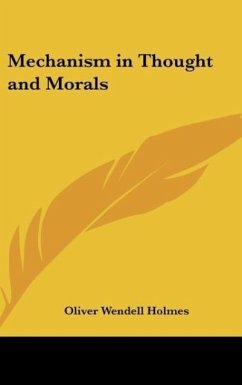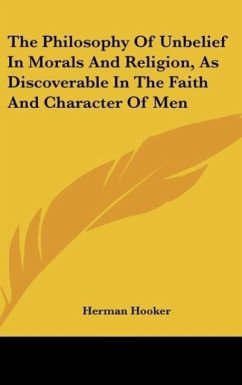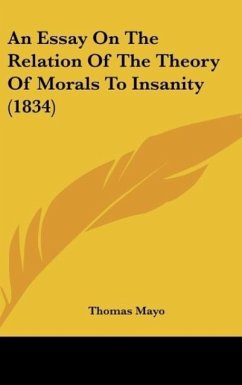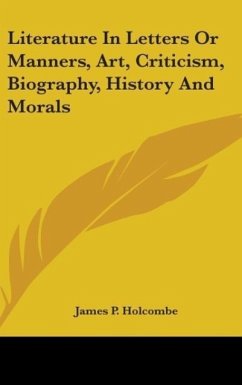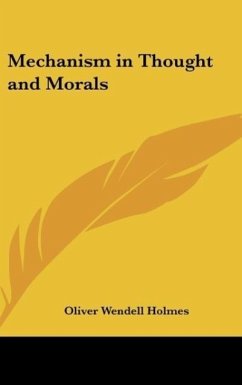
Mechanism in Thought and Morals
Versandkostenfrei!
Versandfertig in 1-2 Wochen
28,99 €
inkl. MwSt.
Weitere Ausgaben:

PAYBACK Punkte
14 °P sammeln!
1871. The present volume contains an address delivered before the Phi Beta Kappa Society of Harvard University, June 29, 1870, with notes and afterthoughts. Mr. Holmes delivered this lecture meaning to stimulate rather than satiate the interest of the listeners and it was not meant to be a complete treatment of a narrowly limited subject.



